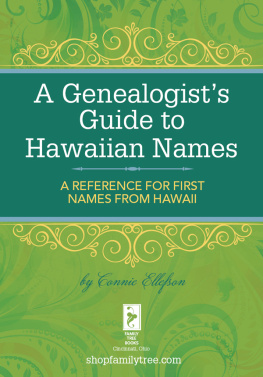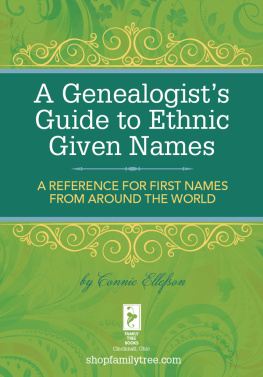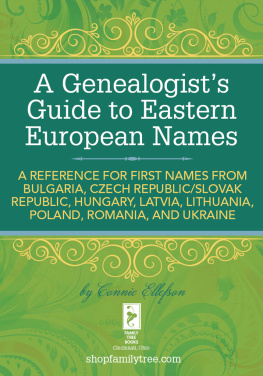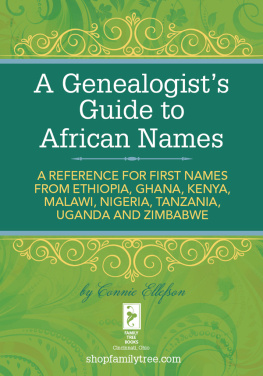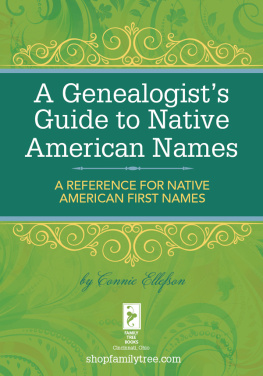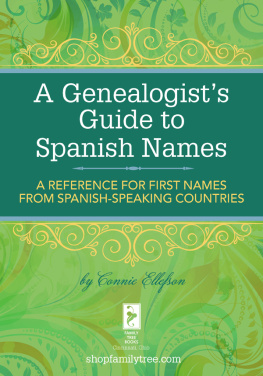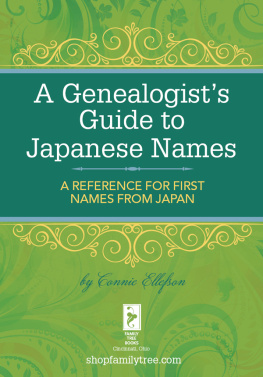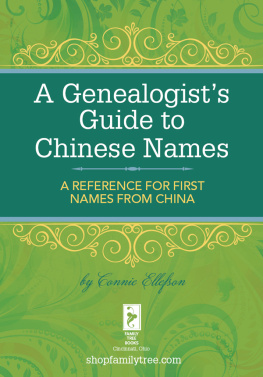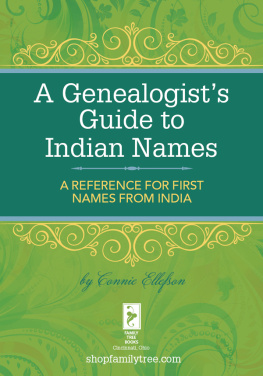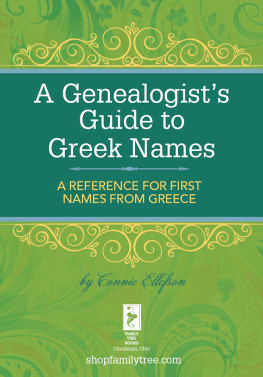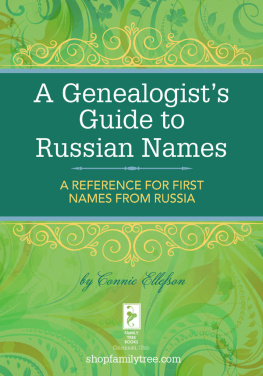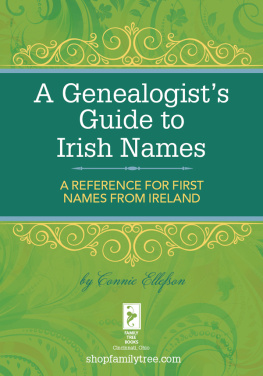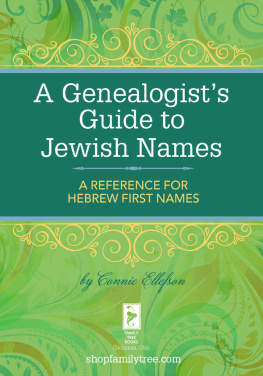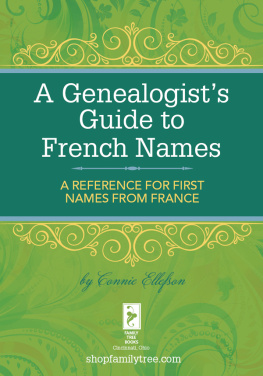A Genealogists Guide to Hawaiian NamesA REFERENCE FOR FIRST NAMES FROM HAWAIIby Connie Ellefson Cincinnati, Ohio shopfamilytree.com
Hawaii
The original Hawaiians were Polynesian voyagers who traveled to Hawaii about 1,500 years ago from the Marquesas Islands nearly 2,000 miles to the south. They were later joined by immigrants from Tahiti. By 1778, when Captain Cook arrived in Hawaii from Europe, the native population numbered approximately 300,000. In the next seventy-five years, their numbers were sadly depleted, largely due to their contact with European diseases, from which they had no immunity. The first official census in 1853 counted only 71,000 native Hawaiians, less than one-fourth their population in 1778. Beginning in the last decade of the nineteenth century, such large numbers of foreigners, especially Japanese and Korean, were hired to work in the sugarcane fields that native Hawaiians gradually became a smaller and smaller proportion of the total population of Hawaii.
By 1900, they represented only 25 percent. Other notable immigration movements to Hawaii included six shiploads of Spaniards from Andalusia in southern Spain who were recruited to work in the Hawaiian sugarcane fields between 1907 and 1913. A much larger contingent of Portuguese from Madeira (see Portuguese chapter) immigrated for the same reason between 1878 and 1898. A total of 13,000 Portuguese immigrated in this period, and by 1930, the nearly 28,000 of their descendants made up 7.5 percent of the total population. The Japanese were by far the largest immigrant group, however. Between 1861 and 1940, over 300,000 Japanese immigrated to Hawaii, with the peak time period being 1901 to 1907, when 108,000 Japanese immigrants entered the island.
In 1900, Japanese people represented 40 percent of the population of Hawaii. However, with the influx of Caucasians (called hao-les in Hawaiian), their percentage declined to twenty-eight by 1970. In line with their easygoing attitude toward life, Hawaiians have intermarried with immigrants much more freely than has occurred in other areas. The resulting cosmopolitan population includes not only the groups mentioned above but Europeans, Chinese, Filipinos and Puerto Ricans. In 1959, when Hawaii became part of the U.S., over 600,000 citizens of this beautiful, benign region became a part of the melting pot.
Language
The Hawaiian language consists only of five vowels and seven consonants.
It is usually written with vowels and consonants alternating; however, multiple vowels occur, in which case each is pronounced as a separate syllable. Aulii, for example, is pronounced ah-oo-LEE-ee. Many names can be used interchangeably for boys and girls. Some names are created by the parents by combining elements such as Lani (sky or heavenly), Lei (wreath or child), Kapu (sacred) or Nani (beautiful).
Pronunciation
a = ah as in ball e = eh as in late i = ee as in keep o = oh as in hope u = oo as in moon w = w as in water, when following o or u w = v as in very, when following e or i w = w or v, when following a or at beginning of word (follows native preference) h, k, l, m, n = as in English
Hawaiian Female Names
Alamea ripe, precious
Alana an offering
Alani orange tree
Alaula light of early dawn
Aleka (uh-LEH-kuh) (Alice) (OGer) noble, kind
Alika (Gr) truthful
Aloha greetings, friendship, farewells
Alohi shining, brilliant
Alohilani bright sky
Amaui a thrush Ana (Anne)(H) graceful; Ane, Aneka (Annette)
Anabela graceful, beautiful
Anakela (Angela) (Fr) angel
Anuhea cool and soft fragrance
Aolani heavenly cloud
Aukai (AH-oo-KAH-ee) seafarer
Aulani royal messenger
Aulii (ah-oo-LEE-ee) dainty
Derya ocean
Ekika (Edith) (Teut) rich gift
Elenola (Eleanor) (Gr) light
Elikapeka (eh-lee-kuh-PEH-kuh) (Elizabeth) (H) consecrated to God; Peke
Emalia (Emily) (Teut) industrious; Emele
Eme (EH-meh) (Amy) (Fr) beloved
Ewalina (ee-vuh-LEE-nuh) (Evelyn) (H) life
Haimi the seeker
Hauoli (hah-oo-OH-lee) happy
Haunani (hah-oo-NAH-nee) beautiful dew
Healoha (heh-uh-LOH-huh) a loved one
Helena (Helen) (Gr) light
Hiwahiwa (hee-vuh-HEE-vuh) precious
Hoku star
Hokulani star in the sky or heaven
Ihilani (ee-hee-LAH-nee) heavenly splendor
Ilima (ee-LEE-muh) name of a yellow flower
Inoa name, name chant
Ioana (ee-oh-AH-nuh) (Joan, Joanne) (H) Gods gracious gift
Ioi (ee-OH-ee) (Joy) (OFr) jewel, delight
Ipo sweetheart
Iulia (ee-oo-LEE-uh) (L) youthful
Iwalani (ee-vuh-LAH-nee) heavenly sea-bird
Iwone (ee-VOH-neh) (Yvonne) (Ofr) archer
Kaohe (kuh-OH-heh) the bamboo
Kaohu (kuh-OH-hoo) mist
Kahoku (kuh-HOH-KOO) the star
Kaimi (kah-EE-mee) (Polynesian) the seeker
Kai (KAH-ee) sea or sea water
Kaili (kah-EE-lee) a Hawaiian deity
Kainoa (kuh-ee-NOH-uh) the name
Kaipo (KAH-ee-poh) the sweetheart
Kakalina (Gr) pure
Kala (Sarah) (H) princess
Kalama (Polynesian) the flaming torch
Kalea (kuh-LEH-uh) (Claire) (L) bright, clear
Kaleki (kuh-LEH-kee) (Grace) (L) graceful
Kalena (KAH-leh-nuh) (Karen) (Gr) pure
Kalola (KAH-loh-luh) (Carol) (Fr) song of joy
Kama (Gr) nursling
Kamika from English Smith
Kanani (Polynesian) the beauty
Kani (KAH-nee) (Connie) (L) constant
Kanoa (Polynesian) the free one
Kapono the righteous
Kapua (Polynesian) the blossom
Kapule (Polynesian) a prayer
Kaui (KAH-oo-ee) the beauty
Kaula (Polynesian) prophet
Kaulana (kah-oo-LAH-nah) fame
Kawailani (kuh-WAH-ee-LAH-nee) the heavenly water
Kawena (kuh-VEH-nuh) the glow
Keala (keh-AH-luh) the fragrance
Keahi (keh-AH-hee) the fire
Keakalina (keh-ah-kuh-LEE-nuh) (Jacqueline) (H) Gods gracious gift
Kealoha the loved one
Kehaulani (KEH-HAH-oo-LAH-nee) heavenly dew
Kekai (keh-KAH-ee) sea
Kekipi the rebel
Kekona second-born child
Kekupaa (keh-koo-PAH-ah) the steadfast one
Kelekolio perhaps seahorse; Kele
Kepola (Deborah) (H) a bee
Kiele (kee-EHL-ee) gardenia, fragrant blossom
Kikilia (Cecilia) (L) blind, gray eyes
Kiliwia (kee-lee-VEE-uh) (Sylvia) (L) forest
Kini (H) God is gracious
Kolika (Doris) (Gr) from the ocean
Kololeke (koh-loh-LEH-keh) (Dolores) (L) sorrows

